
Digital Marketing Job Description: Key Skills & Tools You Need to Know
Jun 19, 2025 5 Min Read 4716 Views
(Last Updated)
If you’ve ever scrolled through social media, Googled something, or clicked on an online ad, you’ve interacted with digital marketing. From catchy Instagram ads to Google search results, digital marketers are the masterminds behind it all. With the world going digital, this role is more crucial than ever, and businesses require savvy marketers who can drive engagement and achieve results online. If you’re thinking about jumping into digital marketing or want to know what skills and tools you need to crush it, you’re in the right place.
In this blog, we’re breaking down the digital marketing job description, key aspects of a digital marketing job, the essential skills you should have, and the tools that will help you stand out. Let’s dive in!
Table of contents
- Understanding the Role of a Digital Marketer
- Key Responsibilities in a Digital Marketing Job Description
- Campaign Strategy and Planning:
- Content Creation and Optimization:
- Social Media Management:
- SEO and SEM Implementation:
- Performance Analysis and Reporting:
- Email Marketing Campaigns:
- Paid Advertising Management:
- Market Research and Audience Insights:
- Cross-Functional Collaboration:
- Brand Management and Development:
- Essential Skills Required for Digital Marketing Jobs
- Analytical Thinking
- Communication Skills
- Technical Proficiency
- Stakeholder Management
- Problem-Solving
- Content Strategy Development
- Agile Marketing Knowledge
- Decision-Making
- Common Tools & Technologies Used by Digital Marketers
- How to Stand Out in Digital Marketing Job Interviews
- Highlight Relevant Skills:
- Showcase Achievements:
- Tailor Your Resume:
- Highlight Cross-Functional Collaboration:
- Showcase Real-World Projects:
- Use Data to Support Your Success:
- Earn Certifications:
- Wrapping Up
- Frequently Asked Questions
- Is digital marketing a good career option?
- How much do digital marketers earn?
- What qualifications do I need for a digital marketing job?
Understanding the Role of a Digital Marketer
A Digital Marketer is a creative and data-driven professional who focuses on promoting products, services, or brands through online platforms. They design, execute, and optimize digital marketing campaigns across various channels like social media, search engines, email, and websites. The goal? To drive traffic, engage audiences, and ultimately increase sales or brand awareness.
Digital marketers are behind the ads you see on Instagram, the Google searches you perform, and the email newsletters that pop into your inbox. They use a combination of creativity, analytical skills, and technology to reach target audiences and achieve business objectives. Whether it’s crafting an attention-grabbing ad, optimizing a website for search engines, or analyzing data to improve campaign performance, digital marketers make sure their strategies connect with the right audience at the right time.
Primary Tasks Involve: Creating engaging content, analyzing data for campaign optimization, managing social media profiles, executing SEO and paid search strategies, and frequently collaborating with designers, content creators, and product teams to ensure brand consistency and success across all digital touchpoints.
Key Responsibilities in a Digital Marketing Job Description
Digital marketing professionals play a crucial role in helping businesses grow their online presence, engage with their audience, and drive conversions. The responsibilities of a digital marketer span multiple facets of digital channels and require a mix of creativity, strategy, and data analysis. Here are the key responsibilities that define this exciting role.
Campaign Strategy and Planning:
Digital marketers should create and implement comprehensive marketing strategies across multiple platforms, ensuring alignment with business goals and target audience needs.
Content Creation and Optimization:
Digital marketers are responsible for producing engaging content (blog posts, social media updates, videos, etc.) and optimizing it for SEO, ensuring visibility and engagement across digital platforms.
Social Media Management:
Managing and growing social media profiles is key, including creating posts, engaging with followers, running paid ads, and analyzing engagement metrics.
SEO and SEM Implementation:
Digital marketers should develop and execute SEO strategies to improve organic search rankings and implement SEM campaigns to drive paid traffic to websites.
Performance Analysis and Reporting:
Using tools like Google Analytics, digital marketers will track the performance of campaigns, analyze results, and adjust strategies to optimize conversion rates and ROI.
Email Marketing Campaigns:
Digital marketers design and execute email marketing campaigns, focusing on segmentation, personalization, and performance metrics to drive engagement and lead generation.
Paid Advertising Management:
Managing paid ads across platforms like Google Ads, Facebook Ads, and Instagram Ads to drive targeted traffic, optimize ad spend, and ensure high conversion rates.
Market Research and Audience Insights:
Conducting market research to understand audience behavior, trends, and competitor strategies, using these insights to inform future campaigns and improve targeting.
Cross-Functional Collaboration:
Digital marketers work closely with sales, product, and design teams to ensure cohesive messaging and campaign alignment across all channels and touchpoints.
Brand Management and Development:
Digital marketers ensure brand consistency across all digital platforms, contributing to the overall branding strategy and positioning of the business in the market.
Essential Skills Required for Digital Marketing Jobs
Digital marketing is a dynamic and multifaceted field, requiring a mix of creativity, technical expertise, and strategic thinking. Below are the essential skills needed to excel in this fast-paced industry, especially for those aiming to become top digital marketers.
Analytical Thinking
Digital marketers must have the ability to interpret data, track campaign performance, and draw actionable insights. This helps in continuously refining marketing strategies, measuring ROI, and making data-driven decisions to improve overall campaign effectiveness.
Communication Skills
Crafting engaging content, delivering compelling messages, and collaborating effectively with team members and stakeholders is key to success. Strong communication ensures that marketing campaigns resonate with the target audience while aligning with business goals.
Technical Proficiency
Proficiency in digital marketing tools is essential. Marketers must be familiar with platforms like Google Analytics for tracking web performance, SEO tools such as Ahrefs and SEMrush for keyword research, and marketing automation tools like HubSpot and Mailchimp for email campaigns. Technical skills enable marketers to optimize campaigns and reach the right audience effectively.
Stakeholder Management
A key part of digital marketing is collaborating with internal teams, clients, and external partners to ensure the smooth execution of campaigns. Effective stakeholder management helps marketers align strategies with business objectives, coordinate resources, and meet client expectations.
Problem-Solving
Digital marketers often face challenges such as low engagement, poor ROI, or ineffective audience targeting. The ability to develop innovative solutions, pivot strategies quickly, and troubleshoot issues is essential for maintaining momentum and improving results.
Content Strategy Development
Creating high-quality, audience-relevant content is at the core of any digital marketing campaign. Marketers need to master the art of curating and producing content that resonates with the target audience, drives engagement, and supports brand goals.
Agile Marketing Knowledge
In a fast-evolving digital landscape, flexibility is key. Marketers should be familiar with Agile marketing, which emphasizes iterative campaigns, continuous feedback, and rapid adjustment to strategies for optimizing results and adapting to trends.
Decision-Making
Being able to make informed, data-backed decisions is vital for success. Marketers must use performance metrics, market trends, and customer insights to make impactful choices that drive growth, enhance campaign performance, and lead to better marketing outcomes.
You Might Like: Career Opportunities in Digital Marketing | Digital Marketing Career
Common Tools & Technologies Used by Digital Marketers
For digital marketers, selecting the right tools is crucial for optimizing campaigns, analyzing performance, and managing content across multiple platforms. Below are some of the most popular tools that digital marketers use to boost their effectiveness and achieve marketing success.
- Google Analytics
Google Analytics is an essential tool for tracking website traffic, understanding user behavior, and measuring campaign performance. Marketers can monitor key metrics such as user engagement, conversion, and bounce rates, which help refine strategies and improve user experience.
- SEMrush / Ahrefs
SEMrush and Ahrefs are comprehensive SEO tools that offer insights into keyword research, backlink analysis, and competitor performance. These tools enable marketers to optimize their content strategy, improve organic search rankings, and identify growth opportunities through thorough SEO audits.
- Google Ads
Google Ads is a powerful platform for running paid search and display advertising campaigns. Marketers use Google Ads to reach potential customers through targeted ads that appear on Google’s search engine results pages or across Google’s advertising network. It provides powerful targeting features, performance tracking, and ROI analysis.
- Meta Ads Manager
Meta Ads Manager allows digital marketers to manage and optimize ad campaigns across Facebook, Instagram, and other Meta platforms. It enables precise targeting, ad performance analysis, and A/B testing, helping marketers refine their approach to maximize engagement and conversions.
- HubSpot
HubSpot is a comprehensive marketing automation tool that includes features for email marketing, lead generation, customer relationship management (CRM), and sales funnel management. Marketers can use HubSpot to create personalized content, automate workflows, and track customer interactions throughout the entire buyer’s journey.
- Canva / Adobe Creative Cloud
Digital marketers’ go-to tools for visual content creation are Canva and Adobe Creative Cloud. Canva provides an easy-to-use platform for creating social media posts, banners, and other marketing creatives, while Adobe Creative Cloud offers more advanced design tools for professional-quality graphics, videos, and animations.
- Hootsuite
Hootsuite is a popular social media management tool that allows marketers to schedule posts, track engagement, and analyze performance across various social media platforms. It helps streamline social media workflows, track audience sentiment, and measure the effectiveness of campaigns in real-time.
- WordPress
WordPress is a widely used content management system (CMS) for creating and maintaining websites and blogs. It’s highly customizable, making it ideal for marketers who need a flexible platform to publish content, optimize for SEO, and manage their website’s performance and user experience.
How to Stand Out in Digital Marketing Job Interviews
Breaking into digital marketing requires more than just a general understanding of strategies and tools. To stand out in interviews and impress hiring managers, you need to strategically showcase your skills, experiences, and knowledge of the digital marketing landscape. Here are some areas to focus on to make your application shine:
Highlight Relevant Skills:
Emphasize your expertise in tools like Google Analytics, SEO, SEM, social media platforms, email marketing, and content management systems (e.g., WordPress). In your resume, show how you’ve used these skills to drive measurable results.
Showcase Achievements:
Rather than listing generic duties, highlight your achievements with data-driven results. For example, “Increased website traffic by 25% through SEO optimization” or “Improved email open rates by 15% with targeted campaigns.” Numbers demonstrate the direct impact of your work.
Tailor Your Resume:
Customize your resume for each application. Align your experiences and skills with the job requirements. Use keywords from the job description to pass through Applicant Tracking Systems.
Highlight Cross-Functional Collaboration:
Digital marketing is often a team effort. Emphasize your experience working with content creators, designers, product teams, or sales teams to achieve marketing goals.
Showcase Real-World Projects:
Include campaigns you’ve worked on, such as paid search campaigns, social media strategies, or content marketing initiatives. Focus on the results these campaigns produced—traffic growth, engagement rates, conversion improvements, etc.
Use Data to Support Your Success:
For each project, include key performance indicators (KPIs) such as click-through rates, return on investment (ROI), lead conversion rates, and social media engagement metrics.
Earn Certifications:
Choose an advanced digital marketing course that offers both theoretical knowledge and practical, hands-on learning. Opt for certifications from reputable platforms and institutions. Add these certifications to your resume and LinkedIn profile. They provide tangible proof of your knowledge and show that you are serious about your professional development in digital marketing.
Read More: Crisis Management in Digital Marketing | A Beginner’s Guide
Wrapping Up
In the fast-paced world of digital marketing, staying on top of key skills and tools is essential to standing out and making an impact. Whether you’re just starting or looking to level up, understanding the landscape and continuously refining your expertise will open up endless opportunities. Digital marketing isn’t just about driving traffic; it’s about creating meaningful connections and delivering real value.
Embrace the challenge, stay curious, and keep evolving as the digital space grows. The right skills, tools, and mindset will set you on the path to success in this dynamic field!
Frequently Asked Questions
Absolutely! Digital marketing is one of the most dynamic and fast-growing fields. With the right skills, tools, and a strong personal brand, you can easily carve out a successful career in the digital marketing space.
The average annual salary of Digital marketers in India is INR 5 Lakhs. However, salaries for digital marketers vary depending on experience, location, and specific job role.
No specific technical qualification is required for a digital marketing job. However, a skill certification from a reputable platform in digital marketing and SEO techniques is ideal for a digital marketer role.

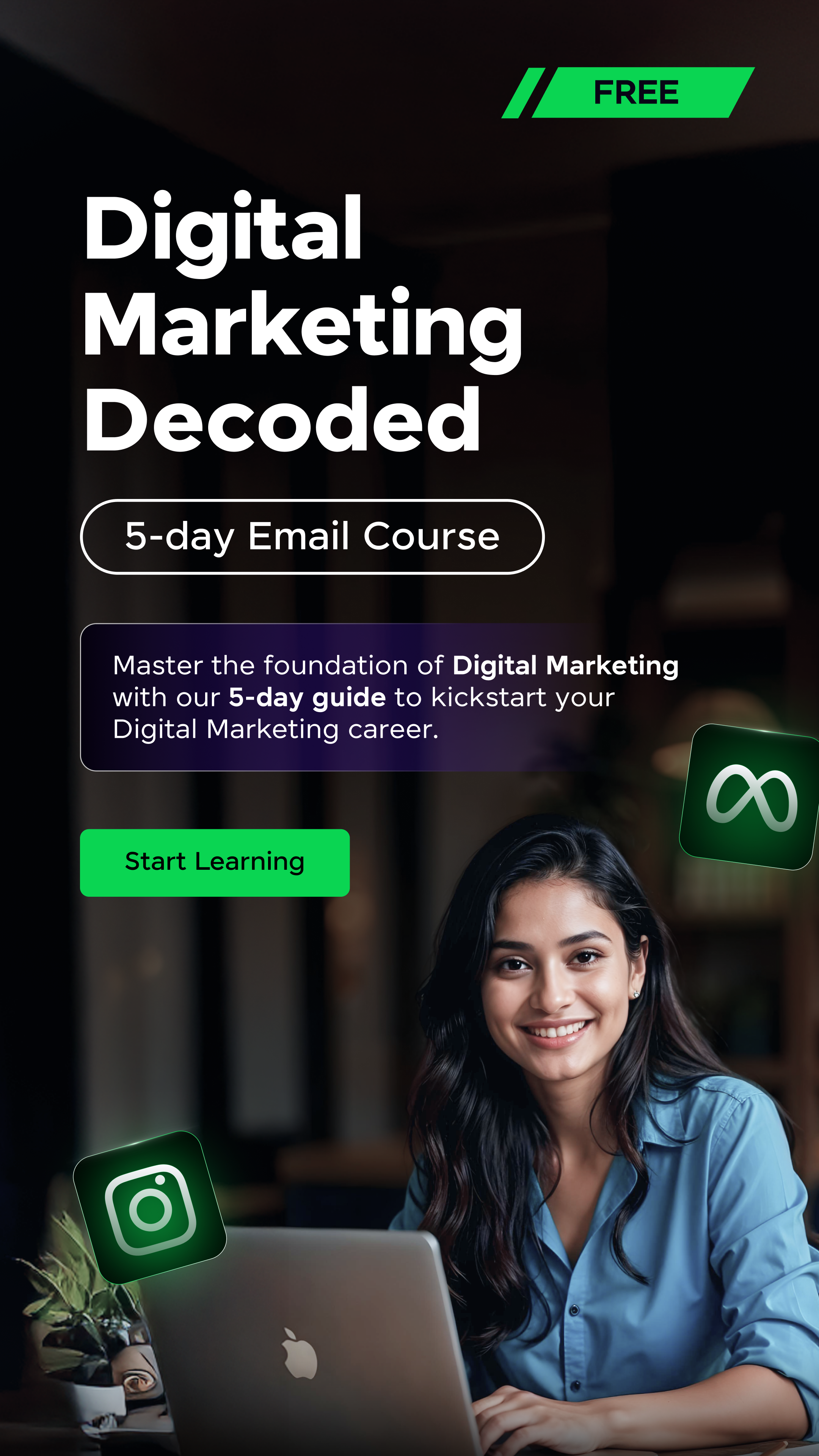


















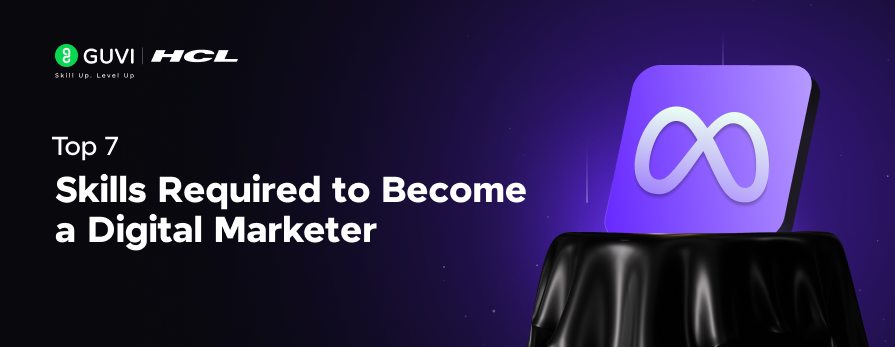
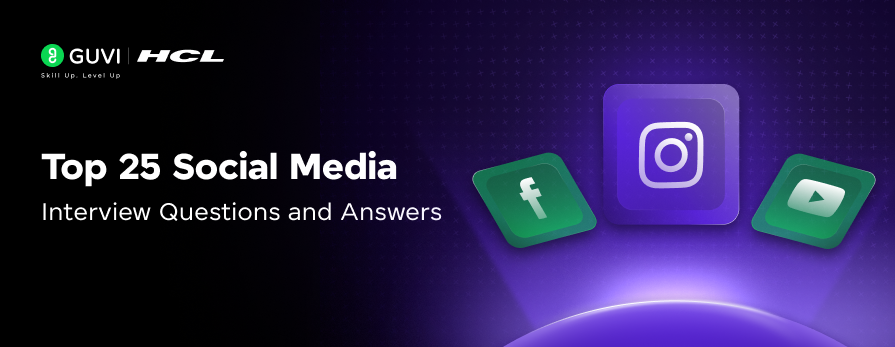


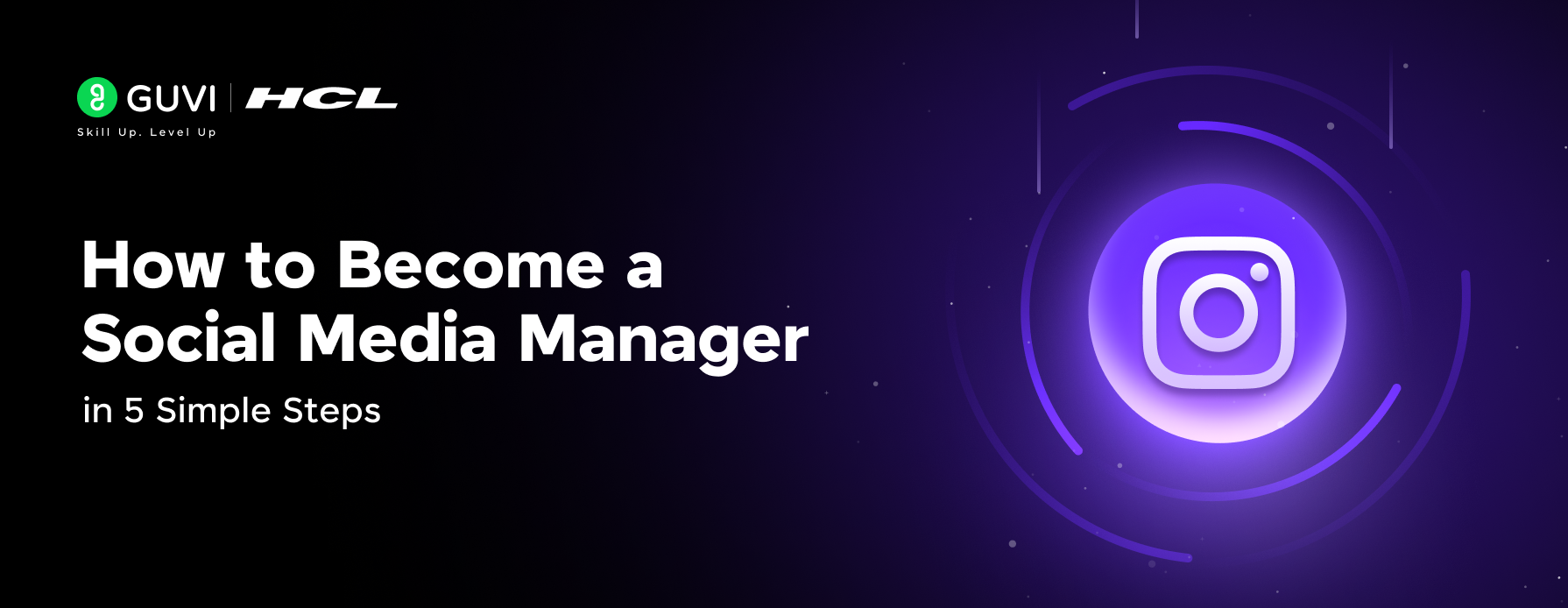
![How to Switch from Sales to Digital Marketing: A Beginner's Guide [2025] 7 sales to digital marketing](https://www.guvi.in/blog/wp-content/uploads/2025/01/How-to-switch-your-career-from-Sales-to-Digital-Marketing.png)
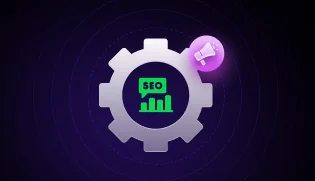

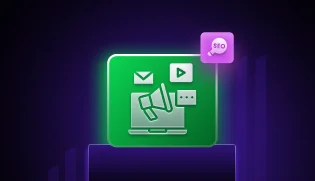

Did you enjoy this article?